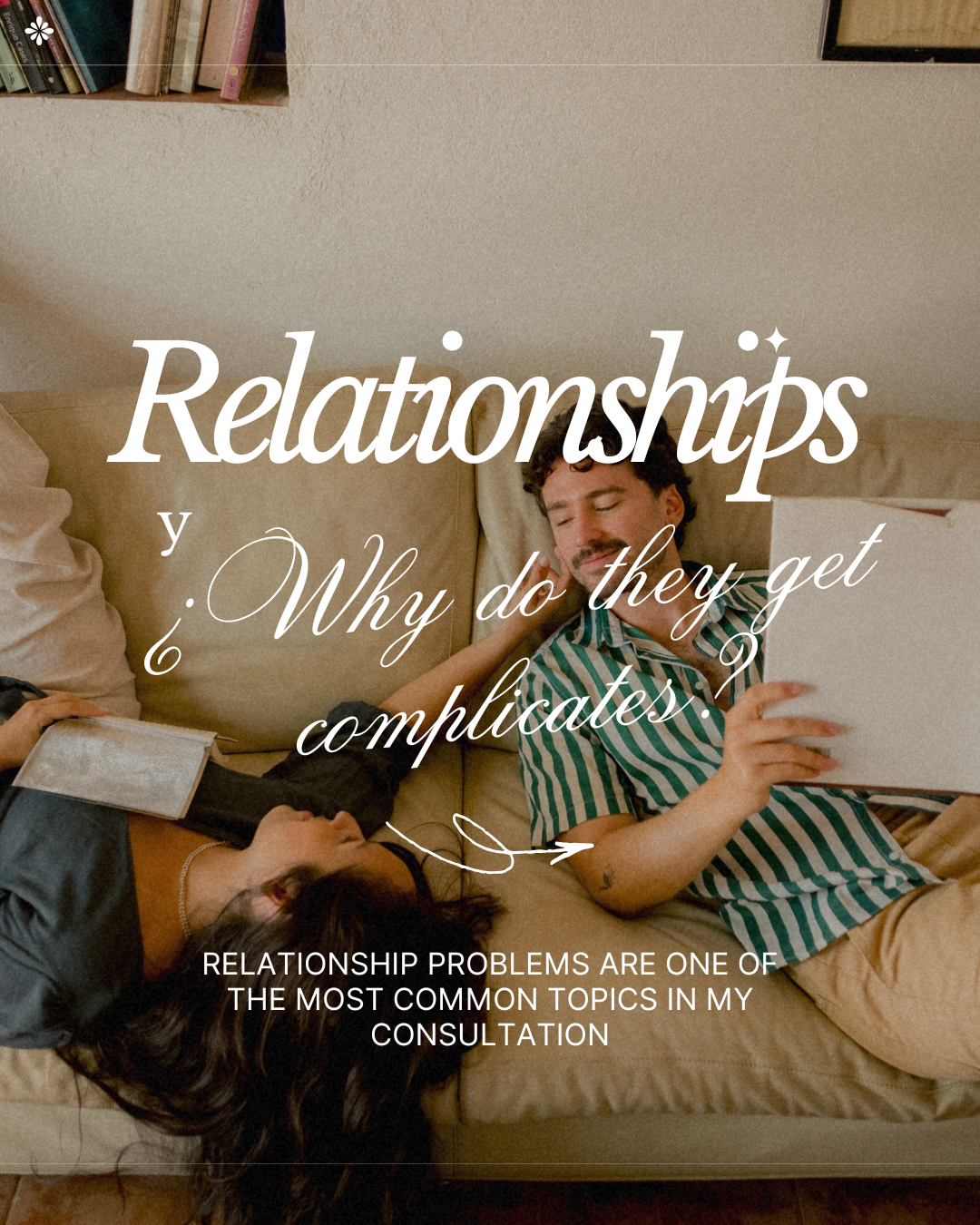RELATIONSHIPS AND COMMON MISTAKES
Being in a relationship is more than just sharing life with someone we like; it is a space where we learn about our partner, but above all, we learn a great deal about ourselves. A romantic relationship acts as a mirror, reflecting inner beliefs and offering chances for personal growth. Every conflict or difficulty is an opportunity for self-knowledge and personal improvement.
Relationship problems are among the most common topics in my sessions—I'd estimate that about 60% of clients bring up issues related to partnerships. Discomfort about being single, mistakes made when in a relationship, and expectations around love and connection deeply affect emotional health and wellbeing.
TOPICS I SEE MOST IN SESSIONS
- The concept of love and how we “should” be loved
Many of us have an idealized idea of love, shaped by movies, stories, or early childhood experiences. We tend to believe that the "honeymoon" phase of infatuation should last forever, which leads to frustration when routine or stability sets in. However, love science shows us that infatuation is a temporary neurochemical phase; as relationships mature, deep connection and commitment become signs of true intimacy. Understanding and accepting this transition lets us value our partner beyond initial excitement and cultivate a mature bond rooted in trust and respect.
- Expectations and emotional responsibility
Relying on our partner as our only source of emotional fulfillment fuels dependence and creates pressure. Each person should take responsibility for their own emotional wellbeing—this includes self-awareness, stress management, and seeking support when needed. Healthy relationships involve two individuals who complement each other without sacrificing independence.
- Clear and assertive communication
Poor communication triggers most relationship conflicts. Your partner is not a mind reader, so expressing desires, boundaries, and emotions respectfully is essential. Practicing active listening builds empathy and allows for collaborative problem-solving.
- Believing your partner must “save” you
This belief fosters codependency and often leads to frustration. Each person is responsible for their own healing and growth. Romantic partnerships should be about mutual support—not about rescuing or fixing each other.
- Infidelity: Roots and prevention
Infidelity often stems from unmet emotional needs, resentment, or lack of connection. Warning signs include poor communication, emotional distancing, or reduced intimacy. Working on reconnection, validating feelings, and seeking professional guidance early can help protect the relationship or lead to sound decisions.
- Lack of empathy and proactivity
Expecting your partner to know or do exactly what you need leads to disappointment. Empathy is built by asking questions and understanding what your partner can and wants to offer. Proactivity means both partners making a conscious effort to nurture each other with acts of care.
- Losing moments of real connection
Routine can be a relationship's enemy if managed passively. Time spent together should be intentional and high-quality, with activities that strengthen the emotional and relational bond—from heartfelt conversations to shared hobbies. Prioritizing connection increases satisfaction and relationship longevity.
And that's why today I want to leave you this gift
Game to reconnect with your partner



Comentarios ()